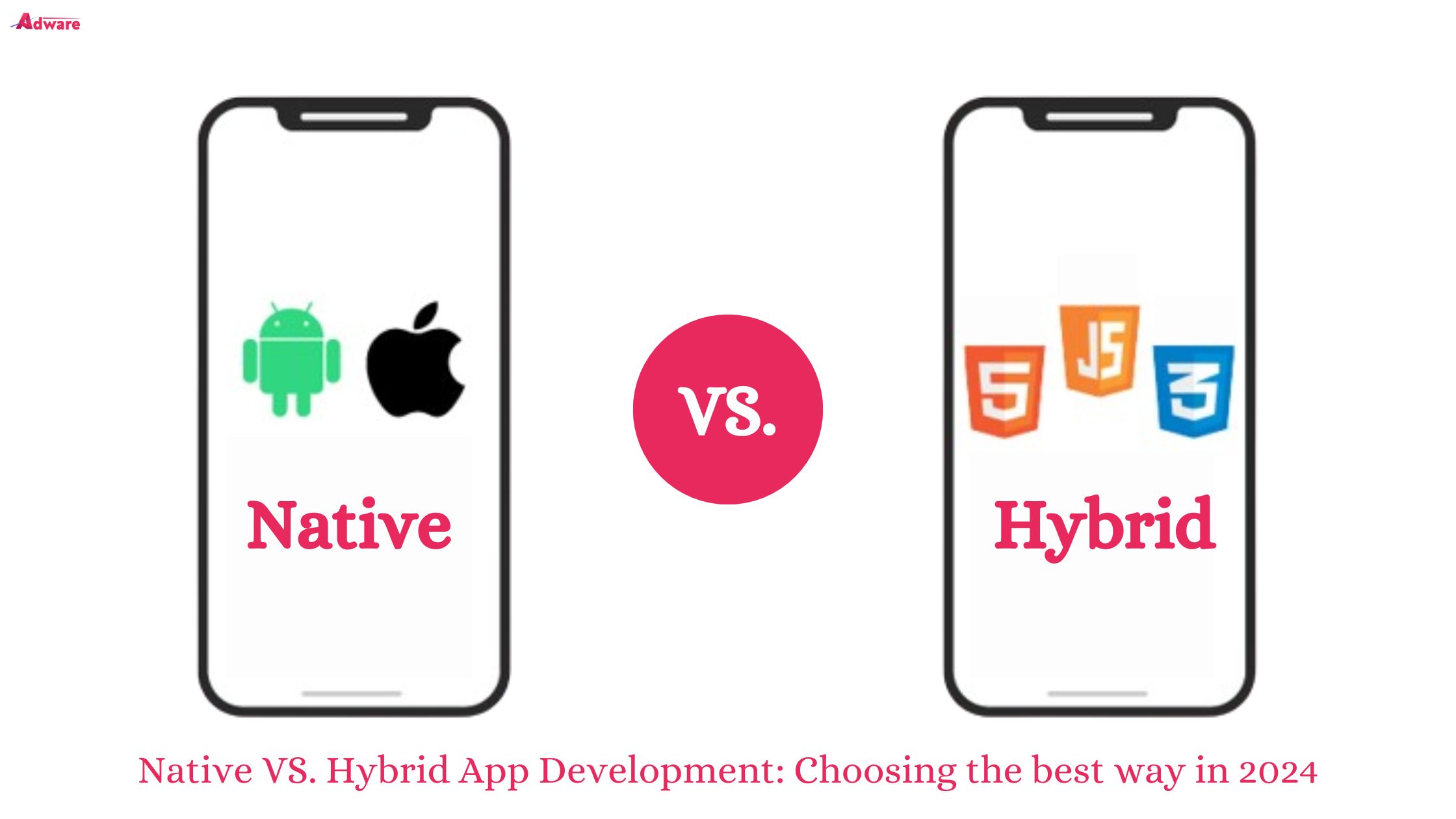When it comes to making mobile apps, there are two main ways to go about it native and hybrid. It's a bit like picking between a Swiss Army knife that can do a little bit of everything or a specialized tool that excels at one specific task.
Imagine you're a business or a developer diving into the world of mobile apps. You want your app to be amazing, but you're stuck deciding which approach to take.
In 2024, this decision is super important. Technology is evolving fast, and people have higher expectations than ever before. So, you've got to choose wisely to make sure your app stands out.
Android App Development Company, Native apps are like the Swiss Army knife. They're made specifically for one platform, like iOS or Android. This means they can give users a smooth experience because they're tailored to work perfectly with that platform's hardware and software.
On the other hand, hybrid apps are more like a specialized tool. They're built using web technologies like HTML, CSS, and JavaScript, and then packaged up to work on multiple platforms. This makes them great for reaching a wider audience, but sometimes they might not feel as snappy or smooth as native apps.
So, which path should you take? It depends on what you're trying to achieve. If you want your app to run super smoothly and take full advantage of everything a platform has to offer, native might be the way to go. But if you're working with a tight budget or need to get your app out on multiple platforms quickly, hybrid could be your best bet.
At the end of the day, it's all about weighing up the pros and cons of each approach and picking the one that fits your project best. Whether you go native or hybrid, the goal is always the same: to create an awesome app experience that keeps users coming back for more.
Understanding Native and Hybrid Apps
There are the following -
1. Native Apps:
Native apps are like tailor-made outfits for your smartphone. They're built specifically for either iOS or Android devices, using the languages and tools provided by those platforms. For example, iOS apps are usually made with Swift or Objective-C, while Android apps are crafted with Java or Kotlin.
These apps are all about making the most of what your device can do, tapping into its camera, GPS, and other cool features. Because they're built to fit their platform like a glove, native apps often run smoother and feel more responsive than other types.
You can find native apps in places like the Apple App Store or Google Play Store. They get to play with all the special features that come with your phone, giving you a more customized experience.
Mobile App Development Company, Overall, native apps are like the top-tier option in mobile app land. They're fast, they work great, and they're packed with all the latest goodies your phone has to offer. But, making them does take a bit more time and effort since you've got to build separate versions for iOS and Android. There are the following -
a) Core Technologies
b) Performance and Integration
c) Development and Maintenance
2. Hybrid Apps:
Hybrid App Development Company - Hybrid apps are versatile players in the mobile app scene. They're crafted using web technologies such as HTML, CSS, and JavaScript but can cleverly mimic the appearance and feel of native apps.
Instead of tailoring themselves to just one platform like iOS or Android, hybrid apps use a single codebase that works across different platforms. They're like a one-size-fits-all solution, which can save time and money during development.
Since they're built with web technologies, hybrid apps can be more cost-effective and faster to develop compared to native apps. Plus, they have the advantage of being able to run on various devices, reaching a broader audience.
However, there's a trade-off. Hybrid apps might not always deliver the same level of smoothness and responsiveness as native ones. They're a bit like jacks of all trades but masters of none.
You can find hybrid apps alongside native ones in app stores like the Apple App Store and Google Play Store. They seamlessly blend into the native app environment, offering users a familiar experience. There are the following as-
a) Underlying Technology
b) Cross-platform Compatibility
c) Performance Considerations
d) Access to Device Features
The Development Dilemma: Native App VS. Hybrid App
When deciding between native and hybrid app development, several factors come into play, each impacting business strategy, development expenses, and user satisfaction.
Feature Accessibility and Performance:
Native apps have a clear advantage, as they seamlessly integrate with device hardware, resulting in quicker response times and smoother user experiences. Their direct access to device capabilities enables the incorporation of advanced features and functionalities, such as augmented reality and sophisticated data encryption.
Read More: World-Class Web and Mobile Apps Development Company
On the other hand, hybrid apps sometimes struggle to match the performance and feature set of native parts due to their reliance on web technologies and the additional layer of abstraction provided by the native shell. Although recent advancements like React Native have narrowed this gap, hybrids still encounter limitations in accessing device-specific features and achieving optimal performance.
Development Time and Cost:
Native app development demands significant resources, as it necessitates separate codebases for each platform. This results in higher costs and longer development times. Additionally, the requirement for specialized knowledge in platform-specific languages adds complexity and expense to the process.
In contrast, hybrid apps excel in this area by enabling a single codebase to deploy across multiple platforms. This streamlines the development cycle and substantially reduces costs, making it an appealing option for startups and businesses seeking to test their ideas without a hefty initial investment.
The Future Landscape of App Development:
As we set our sights on 2024, the app development landscape is in a state of constant evolution. Emerging technologies and evolving user expectations are pushing the boundaries of what apps can achieve. In this dynamic environment, the decision between native and hybrid development has become more strategic than ever before.
a) Advancements in Hybrid Technologies
b) Increasing Demand for Sophisticated Apps
c) The Role of Progressive Web Apps (PWAs)
Choosing Between Native App and Hybrid App:
In 2024, deciding between native and hybrid app development depends on factors like your business goals, target audience, budget, and app features.
Native apps are top-notch in performance and user experience. On the other hand, hybrid apps offer a cost-effective way to reach more people quickly.
If your goal is to innovate and push mobile tech boundaries, native development might be best. But for startups and companies aiming for fast market entry and reaching users across platforms, hybrid or even Progressive Web App (PWA) development could be the way to go. For more information, contact us now




Comments (0)